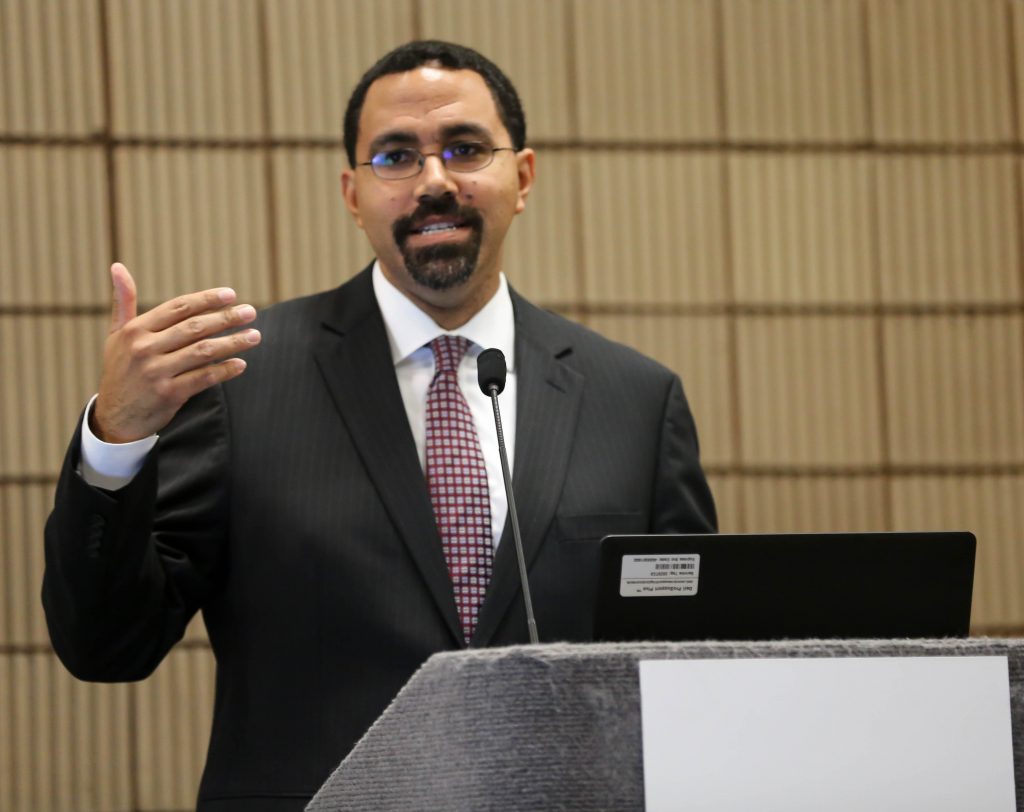What is the role of the superintendent in creating a school environment that ensures equity, respects all students and protects our children, particularly vulnerable children, in the new political climate?
John B. King Jr., until recently the U.S. secretary of education and newly appointed president and CEO of the Education Trust, addressed this question after accepting the 2017 Dr. Effie H. Jones Humanitarian Award Friday afternoon. The occasion was the Dr. Effie H. Jones Memorial Luncheon at AASA’s national conference.
In King’s view, there are two roles for superintendents moving forward.
First, they need to fight for public education.
“Vouchers are not a scalable solution,” King said during a video interview with Conference Daily Online that followed the luncheon. He was asked about the prospects of a federal education program based on expanding school choice, rapid expansion of charter schools and the use of vouchers.
He contended public charter schools can be effective if they are held to the same standards and accountability as traditional public schools. King cited the experience of public charters in Massachusetts as a successful example owing to a strong independent review process and a willingness to close a school that is not successful.
Second, King said, superintendents and other school system leaders need to ask the hard questions.
“As Congressman John Lewis said recently, we need to make good trouble,” King said during his prepared luncheon remarks. “We need to ask the hard questions. Together we need to fight.”
One of those hard questions to be asked by a superintendent, King said, might determine which schools within a school district receive or don’t receive additional resources. Examine why, he added, schools have police officers but not school counselors to address disciplinary issues.
Inquire about which students are in the Advanced Placement science and math classes and which children are in the robotics clubs. If there aren’t many girls or minority students in those type of classes or clubs, he suggests leadership ask why that is so?
But school leaders responsibilities must not stop at the schoolhouse door, King said.
School districts need to understand how children may have incarcerated parents or may be worried they or their families may be deported – factors that affect how children behave in the classroom and can hinder their learning.
Furthermore, King said, if a student is chronically absent, the reason could relate to whether that child has access to health care or access to food.
“We need to be the voice to the kids who are most vulnerable,” King said, in completing his luncheon remarks. “We teach whole children, with whole lives.”
(By Rebecca Shaw, a reporter for Conference Daily Online.)


